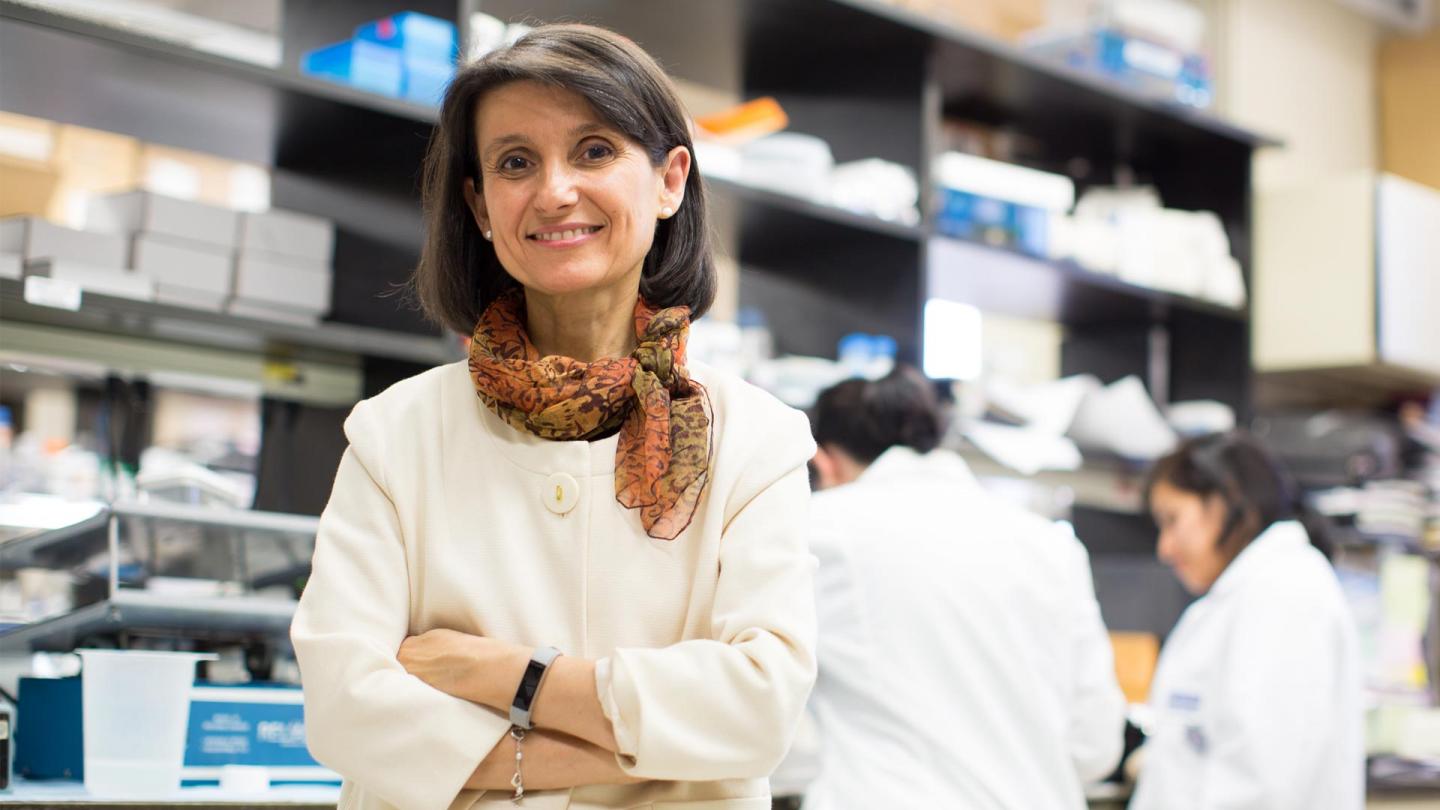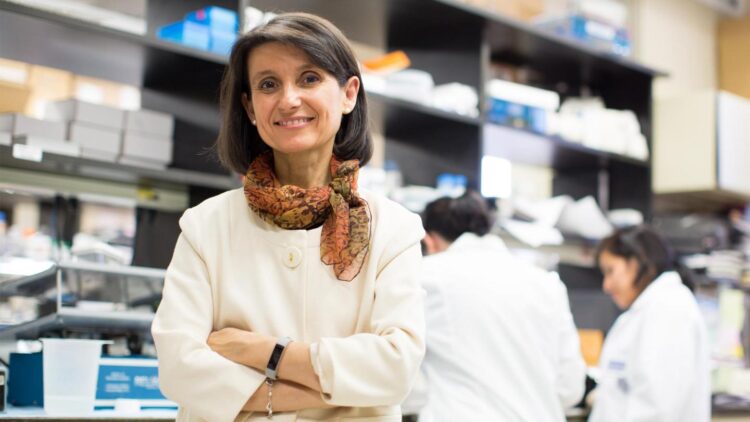
Credit: Albert Einstein College of Medicine
September 8, 2020–(BRONX, NY)–Age is the most significant risk factor for Alzheimer’s disease. In the United States, approximately 1 in 10 people over the age of 65 have the disease, and the odds increase to nearly 1 in 3 for those over 85. However, the mechanisms by which aging increases risk are unknown.
Researchers at Albert Einstein College of Medicine, led by Ana Maria Cuervo, M.D., Ph.D., co-director of the Institute for Aging Research, have received a five-year, $16 million grant from the National Institutes of Health (NIH) to determine how autophagy, a cellular recycling process, is related to the development of Alzheimer’s disease and related dementias. The multidisciplinary team working to untangle this puzzle includes experts in the biology of aging, neurodegeneration, metabolism, immunology, stem cells, drug development, and advanced imaging.
Autophagy is a basic cellular process that digests and recycles faulty or discarded organelles, proteins, and other material in order to keep cells functioning well. Previous research by Dr. Cuervo found that autophagy slows with age, compromising the effectiveness of this cellular waste management system and leading to compromised cellular function and disease.
“We have shown the link between autophagy and several age-related diseases,” said Dr. Cuervo, who is also professor of developmental and molecular biology of anatomy and structural biology, and of medicine, and holds the Robert and Renée Belfer Chair for the Study of Neurodegenerative Diseases at Einstein. “In this project, we seek to determine if and how slowed autophagy leads to the increase of tau, the toxic protein in brain cells that is the hallmark of Alzheimer’s disease. A critical part of this effort involves determining whether blocking the slow-down of autophagy delays or even prevents tau’s accumulation or its toxic effects on cell function.”
Dr. Cuervo, who has led this project for 13 years, plans to build on the accomplishments and discoveries made by the team of 8 faculty members from 6 academic departments at Einstein.
The scientists will examine the effect of compromised autophagy on peripheral tissues; the role of the lymphatic system in autophagy; and whether genetic, chemical, or dietary interventions can help reverse the decline in autophagy and the accumulation of tau.
###
The project, titled “Autophagy in aging: testing geroscience in Alzheimer’s disease,” is funded by the National Institute on Aging, part of the NIH (2P01AG031782).
About Albert Einstein College of Medicine
Albert Einstein College of Medicine is one of the nation’s premier centers for research, medical education and clinical investigation. During the 2019-20 academic year, Einstein is home to 724 M.D. students, 158 Ph.D. students, 106 students in the combined M.D./Ph.D. program, and 265 postdoctoral research fellows . The College of Medicine has more than 1,800 full-time faculty members located on the main campus and at its clinical affiliates. In 2019, Einstein received more than $178 million in awards from the National Institutes of Health (NIH). This includes the funding of major research centers at Einstein in aging, intellectual development disorders, diabetes, cancer, clinical and translational research, liver disease, and AIDS. Other areas where the College of Medicine is concentrating its efforts include developmental brain research, neuroscience, cardiac disease, and initiatives to reduce and eliminate ethnic and racial health disparities. Its partnership with Montefiore, the University Hospital and academic medical center for Einstein, advances clinical and translational research to accelerate the pace at which new discoveries become the treatments and therapies that benefit patients. Einstein runs one of the largest residency and fellowship training programs in the medical and dental professions in the United States through Montefiore and an affiliation network involving hospitals and medical centers in the Bronx, Brooklyn and on Long Island. For more information, please visit http://www.
Media Contact
Elaine Iandoli
[email protected]





